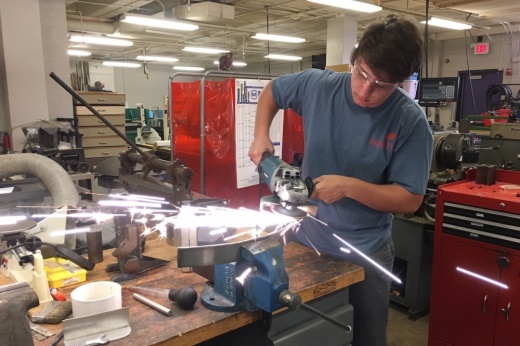The board of trustees called the bond during the Aug. 7 meeting following the recommendation of the district’s bond steering committee.
The gist
Amanda Clair, a RISD parent and bond steering committee member who presented recommendations to the board in a July 24 workshop, said the district has used bonds since 1951 and is currently on a five-year bond schedule.
Based on the current schedule, a bond was expected in May 2026; however, in anticipation of potential changes in the legislature requiring bonds to be called in November, the committee recommended moving the schedule up by six months.
Committee member Chelsea Jeffery said the 2021 bond has made progress but did not address the district’s need.
The 2021 bond was a $750 million bond package split into two propositions. Prop A allocated $694 million for facility renovations and Prop B was for $56 million technology needs.
Zooming in
Per the steering committee’s recommendation, the bond will have three propositions. The first, Proposition A makes up a majority of the referendum at $1.338 billion. The proposal covers completing the middle school transformation for the remaining six junior high campuses, refreshing elementary school restrooms and furniture across the district and construction of a Career and Technical Education center.
It will also fund environmental center renovations, special education services and more.
Proposition B would allocate $54 million to replace tablets for teachers and students and Proposition C would provide $7.4 million to add Americans with Disabilities Act-compliant stadium seating and improve access to the stands.
Branum said, per state law, funds for technology and the stadium must be a separate proposition.
The local impact
If the bond is passed by voters, a $0.04 increase would be applied to the debt services portion of the property tax rate beginning in fiscal year 2026-27, assistant superintendent David Pate said.
“No one took a potential increase for tax lightly,” Branum said. “We know right now with the state of where the economy is, every dollar matters.”
According to the 2025 certified value summaries released by Dallas County Appraisal District, the average taxable value for a home in the Richardson’s portion of RISD is $281,267, which would be an increase of about $52 a year, or about $4.33 per month. Individuals 65 and older will not be affected by the increase.
What they’re saying
Clair said the needs of the district were a driver for recommending such a large bond, adding that the average age of a school in RISD is 58 years.
Because the district isn’t a fast-growth district like Celina or Prosper ISDs, it is not eligible for additional funding from the Fast-Growth Allotment created by state lawmakers during the 87th Legislative Session, Branum said.
During the Aug. 7 board meeting, Euan Blackman, a resident within RISD boundaries and former teacher for the district, said he is supportive of a bond, but said the $1.4 billion price tag is too high.
“I’m a big fan of CTE ... but is the right move an $85 million CTE center right now?” Blackman said.
Additionally, Blackman said the bond should be broken out into more than three proposals, giving voters a greater chance to voice their opinions.
He said he wanted a bond closer to $1.2 billion, which he said wouldn’t have increased the tax rate.
Committee member Eric Stengal also said at the meeting he is supportive of a bond, but is concerned about how the tax increase could affect low-income families.
Jeffery said the $1.4 billion package is needed to ensure facilities get the upgrades needed and students remain safe and secure while on campus.
Additionally, the proposed CTE center could help ensure RISD students have high-wage and high-demand career training and earn certifications before graduating high school, she said.
“Another equally important aspect in this bond is our district’s commitment to middle school transformation,” Jeffery said.
So far, four campuses have been transitioned and the 2025 bond would provide funding to transition the remaining junior high schools to middle schools.
Going forward
If voters do not approve the 2025 bond, the district would be unable to fund the vast majority of projects in the proposed package, a district representative said.
District staff and the board of trustees would review whether projects could be funded from reserve funds. Some urgent needs, such as unanticipated HVAC replacements, could be funded through emergency withdrawals.
Should voters decide not to approve the bond, district staff would look at calling another bond election in May 2026.





